By Danielle Anderson and Rebecca Johnson, Christianson CPA & Consultants
The 45Z Clean Fuel Production Tax Credit is a transformative opportunity for renewable fuel producers, rewarding efforts to reduce greenhouse gas emissions with substantial financial incentives. With benefits up to $1 per gallon for qualifying transportation fuels, this credit positions producers at the forefront of the clean fuel transition.
But there is a catch: to access the full 5X enhanced rate of $1.00 per gallon—rather than settling for just $0.20—taxpayers must comply with strict Prevailing Wage and Apprenticeship (PWA) standards. Grasping these requirements and planning ahead is essential, as proactive compliance can mean the difference between maximizing your credit and facing avoidable delays or penalties.
What Are the 45Z PWA Requirements?
The PWA provisions embedded in the Inflation Reduction Act establish standards for wage rates and workforce development. Here is what producers need to know:
- Prevailing Wage (PW):
Employees, contractors and subcontractors working on construction, alteration or repair of a qualified facility must pay wages at or above the prevailing rates determined by the Department of Labor for similar projects in the area. These hourly rates may include both cash wages and fringe benefits. - Apprenticeship:
Apprentices must be registered with federal or state certified programs, and specific requirements, such as ratios, may differ by program. Starting in 2024, at least 15% of total labor hours for covered activities must be performed by registered apprentices.
While prevailing wage rates are publicly available on SAM.gov, apprenticeship requirements differ by region and depend on the specific registered programs in place. The following provides an overview of the structure and application of these apprenticeship standards.
Understanding the Apprenticeship Requirements
The apprenticeship requirements aim to build a skilled, reliable workforce and ensure that investments contribute to long-term economic development. The applicability of these requirements is determined by the construction start date and placed-in-service date of the facility.
Beginning construction on or after January 29, 2023, triggers the need to comply with the following apprenticeship standards:
1. Participation Requirement:
The taxpayer must ensure one or more apprentices perform work on the facility across the full range of work. For every contractor or subcontractor with four or more workers performing a type of work, one or more apprentices must also perform the same type of work, not to exceed the ratio requirement. For example, if a project employs four electricians, at least one must be a registered apprentice to meet the participation threshold.2. Ratio Requirement:
The taxpayer must ensure there are enough experienced workers—called journeyworkers—on site to guide and train the apprentices. The applicable ratio of journeyworkers to apprentices may vary depending on the qualified apprenticeship program. For instance, under a 1:1 ratio, two apprentices and three journeyworkers meet the requirement—but if apprentices outnumber journeyworkers, the extras must be paid prevailing wages, and their hours will not count toward any of the apprenticeship requirements.
3. Labor Hour Requirement:
Beginning in 2024, a minimum of 15% of total labor hours must be performed by registered apprentices across all employees, contractors, and subcontractors. Compliance is assessed collectively, rather than on an individual employer basis. It is important to accurately track labor hours, ensuring that apprentice hours are properly documented and distinguishable from those of journeyworkers.
4. Scope of Application:
- Covered Activities: Construction work, including new builds, substantial equipment overhauls or expansions of facilities, are subject to apprenticeship requirements. Alterations and repairs may be subject to these requirements if the facility was placed-in-service January 1, 2025, or later.
- Excluded Activities: Routine maintenance is never subject to apprenticeship requirements. Alterations and repairs may not be subject to these requirements if the facility was placed in-service prior to January 1, 2025.
Navigating Compliance Challenges
Meeting PWA requirements can be burdensome and particularly challenging for those with limited access to registered apprenticeship programs. Other compliance hurdles may include:
- Classifying Work Activities: Misclassifying activities such as maintenance versus repairs can lead to unintentional violations.
- Ensuring Accurate Wage Determinations: Consistently reviewing wage rates and classifications when work is performed is necessary, as these rates can change at any time.
- Maintaining Detailed Records: Comprehensive documentation of wages paid, hours worked, and apprenticeship program requirements are essential for compliance and audit readiness.
Prospective buyers of 45Z tax credits are requesting additional documentation or third-party verification of compliance—beyond what is legally mandated—to ensure confidence in the credit’s validity.
What Happens if You Miss the Mark?
Noncompliance does not automatically disqualify one from the full 5X enhanced rate of $1.00 per gallon tax credit for 45Z, but it can lead to costly corrective actions. Violations can be addressed through restitution payments, IRS-imposed penalties, and interest.
However, these remedies can erode the financial benefits of the credit and increase scrutiny of future claims. The IRS does provide an option to receive a penalty waiver for Prevailing Wage and an Apprenticeship Good Faith Exception for taxpayers meeting additional criteria.
Achieving Compliance Excellence
The 45Z Clean Fuel Production Tax Credit is a powerful tool for driving innovation and sustainability in the renewable fuels sector. However, its complexity makes informed and proactive compliance essential. By understanding the PWA requirements and leveraging expert support, producers can confidently claim the increased benefits of this game-changing incentive.
Your path to unlocking the full potential of 45Z starts with preparation, and partners like Christianson CPA & Consultants work with renewable fuel producers to streamline compliance with PWA requirements and other 45Z tax credit provisions to ensure accurate data management and proper classification of activities.





